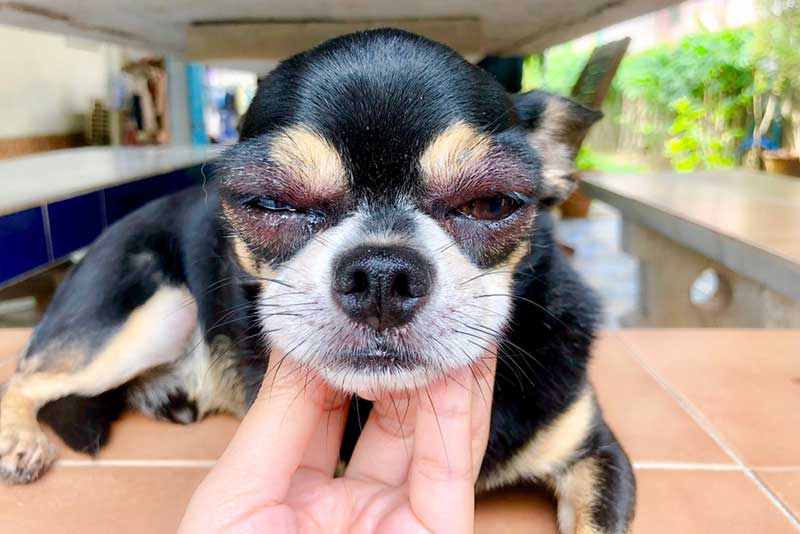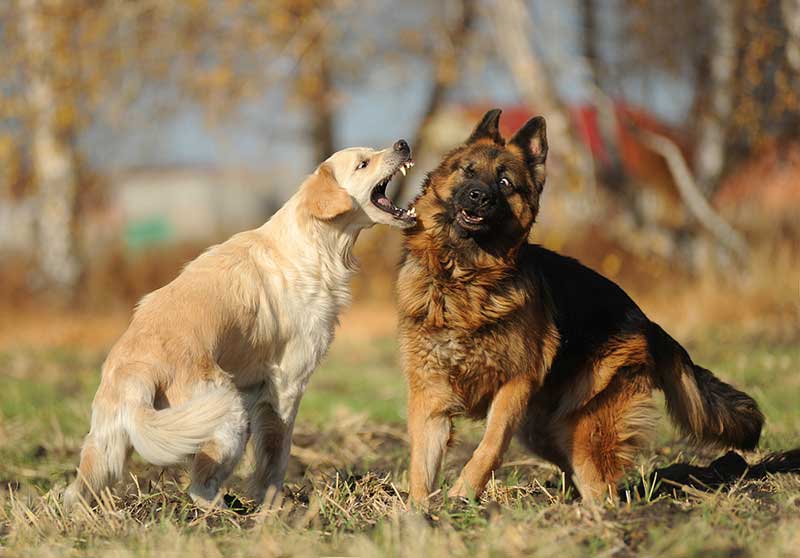My Pet’s Face Is Swelling! What Should I Do?
If an animal’s nose, eyes, cheeks, and/or muzzle become swollen, this is a sign your pet is having an allergic (anaphylactic) reaction. This occurs when a pet is exposed to an allergen, and their immune system overreacts. Pets can experience an allergic reaction anywhere from immediately following allergen exposure to 48 hours after the initial exposure. Depending on your pet’s symptoms, immediate veterinary care might be needed.
Signs of Allergic Reactions in Animals
Facial swelling is just one symptom of allergies in pets. Pets having an allergic reaction to an allergen might also have a rash, red or itchy skin, problems with their coat, hair loss, chronic ear infections, excessive licking, and gastrointestinal problems.
What Could Cause a Pet to Have an Allergic Reaction?
While some pets do have allergies to certain foods and environmental allergens, it’s uncommon for exposure to pollen, mold, dust mites, or trigger foods to result in a severe reaction of the sort that would be indicated by facial swelling or difficulty breathing. These types of anaphylactic symptoms in animals are most commonly caused by medications, vaccinations, and insect bites or stings.


Can Anything Else Cause Facial Swelling in Animals?
Exposure to a toxic substance can cause facial swelling. For example, acetaminophen is highly toxic to cats. Felines who have accidentally ingested acetaminophen commonly experience facial swelling, in addition to other symptoms. As a result, facial swelling in cats is definitely cause to seek immediate veterinary attention.
If a pet has been injured in an accident or an altercation with another animal, the pet might experience facial swelling as a result of an injury. In addition, lymph nodes that are swollen due to cancer can also cause facial swelling. All of these diagnoses are cause for concern that require prompt treatment.
Similarly, if your pet is bitten by a snake, this can trigger facial swelling that may spread throughout their body. Many snake species are venomous and their bites can be fatal. Snake bites require immediate medical attention, so if you think your pet has been bitten, we ask that you contact Adobe Veterinary Center as soon as possible.
What to Do If Your Pet Has an Allergic Reaction
If you notice any signs of an anaphylactic reaction in your pet – especially facial swelling or difficulty breathing following the administration of medication – it is essential to seek veterinary care right away. The severity of an allergic reaction can range from annoying itchiness to life-threatening shock. Depending on the severity of the reaction, your pet might require immediate attention and the administration of life-saving antihistamines and immunosuppressants.
If you’re concerned about your pet’s appearance or behavior, we encourage you to contact Adobe Veterinary Center right away.

